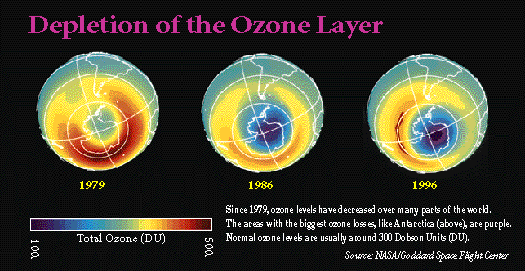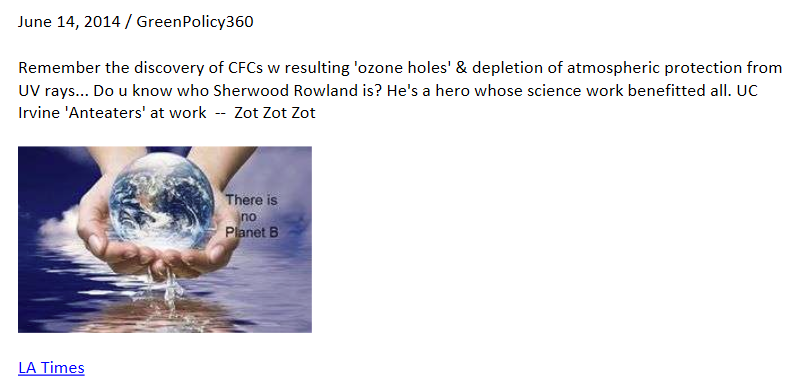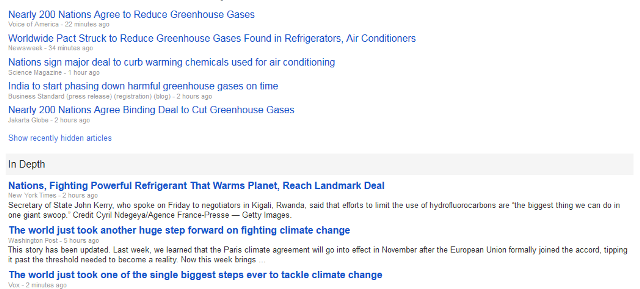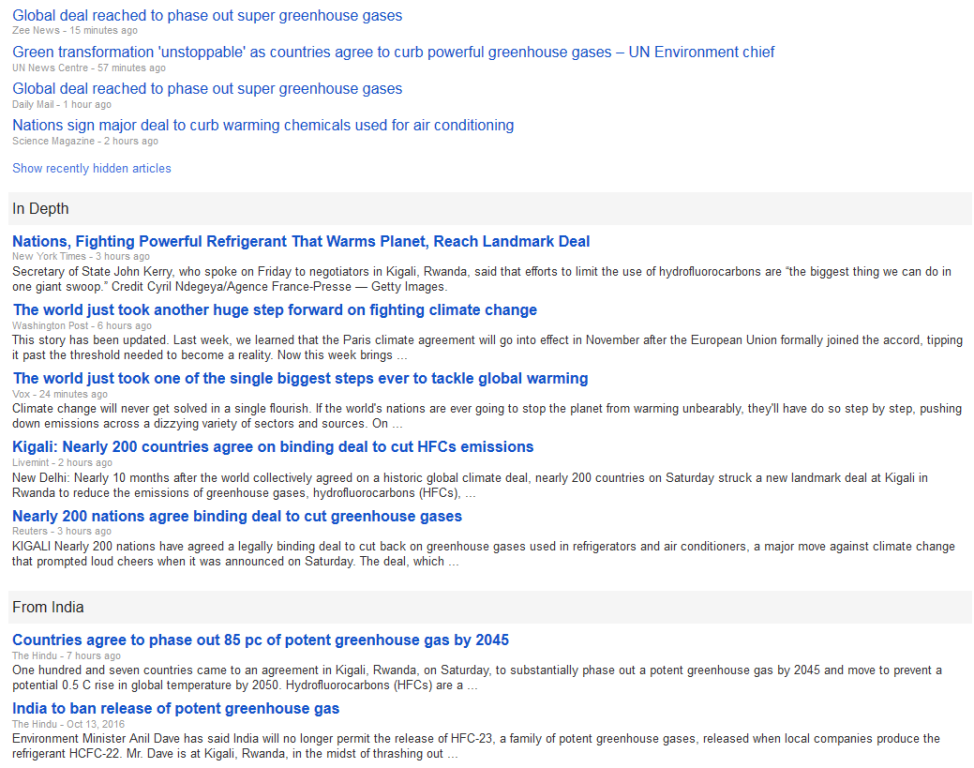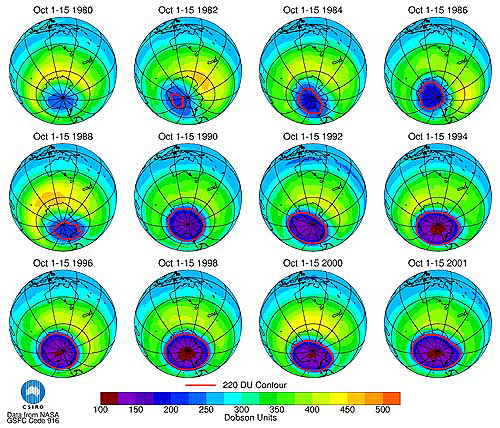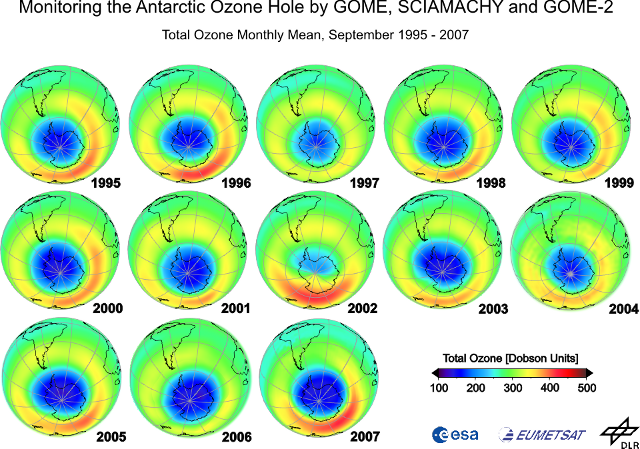Montreal Protocol
2018 Update
https://www.jpl.nasa.gov/images/earth/20180104/earth20180104-16_large.gif
2017
○ ○ ○ ○ ○ ○ ○ ○ ○ ○ ○ ○ ○ ○ ○
Siterunner / SJS: Remembering the scientist/professors from the University of California, Irvine.
Together, Nobel laureate Frank Sherwood Rowland and Nobel prize-winner from San Diego Mario Molina worked out in front to demonstrate the dangers of Chlorofluorocarbons. Their scientific findings in the 1970s first put Ozone depletion and CFCs into public awareness. Their prodigious work and visionary science led to the Montreal Protocol -- the first substantial international agreement to limit destructive atmospheric emissions. The two Montreal ozone treaties have been ratified by 197 parties, which includes 196 states and the European Union, making them the first universally ratified treaties in United Nations history.
Let's look at open source Wikipedia to remember the particulars of the Montreal Protocol and its history-making foundation in environmental and global security.
○ ○ ○ ○ ○ ○ ○ ○ ○ ○ ○ ○ ○ ○
https://en.wikipedia.org/wiki/Montreal_Protocol
Chlorofluorocarbons (CFCs) Phase-out Management Plan
The Montreal Protocol on Substances that Deplete the Ozone Layer (a protocol to the Vienna Convention for the Protection of the Ozone Layer) is an international treaty designed to protect the ozone layer by phasing out the production of numerous substances that are responsible for ozone depletion.
It was agreed on 16 September 1987, and entered into force on 1 January 1989, followed by a first meeting in Helsinki, May 1989. Since then, it has undergone eight revisions, in 1990 (London), 1991 (Nairobi), 1992 (Copenhagen), 1993 (Bangkok), 1995 (Vienna), 1997 (Montreal), 1998 (Australia), 1999 (Beijing) and 2007 (Montreal).
As a result of the international agreement, the ozone hole in Antarctica is slowly recovering. Climate projections indicate that the ozone layer will return to 1980 levels between 2050 and 2070.Due to its widespread adoption and implementation it has been hailed as an example of exceptional international co-operation, with Kofi Annan quoted as saying that "perhaps the single most successful international agreement to date has been the Montreal Protocol".
In comparison, effective burden sharing and solution proposals mitigating regional conflicts of interest have been among the success factors for the Ozone depletion challenge, where global regulation based on the Kyoto Protocol has failed to do so. In case of the ozone depletion challenge, there was global regulation already being installed before a scientific consensus was established. As well in comparison, lay people and public opinion were more convinced about possible imminent risks.
○ ○ ○ ○ ○ ○ ○ ○ ○ ○ ○ ○ ○ ○
Looking Back & Looking Forward
- From the first international environmental treaty in 1987 and continuing...
http://arstechnica.com/science/2015/05/how-bad-would-the-ozone-hole-be-if-we-did-nothing/
http://www.greenpolicy360.net/w/California_out_in_front_in_a_Green_future
http://www.greenpolicy360.net/w/Climate_News
In Depth / Background
https://www.epa.gov/ozone-layer-protection/recent-international-developments-under-montreal-protocol
- SJS - with a nod and h/t to green visionaries who first addressed climate and atmospheric challenges -- and worked to set up the EPA and founding environmental laws as models of what can be accomplished...
- George E. Brown / EPA and first Climate Study, and first earth science studies from space...
- Beginnings of the US & Global Environmental Movement
○ ○ ○ ○ ○ ○ ○ ○ ○ ○ ○ ○ ○ ○
2016 Critical Update
HFC Add-On to the Montreal Protocol
Headline News / October 15, 2016
○ ○ ○ ○ ○ ○ ○ ○ ○ ○ ○ ○ ○ ○ ○ ○
○
